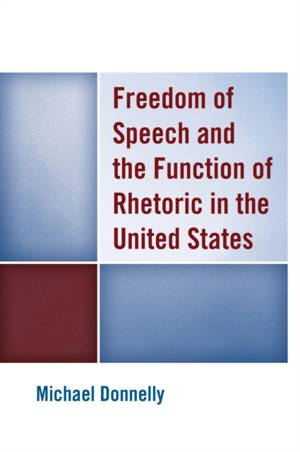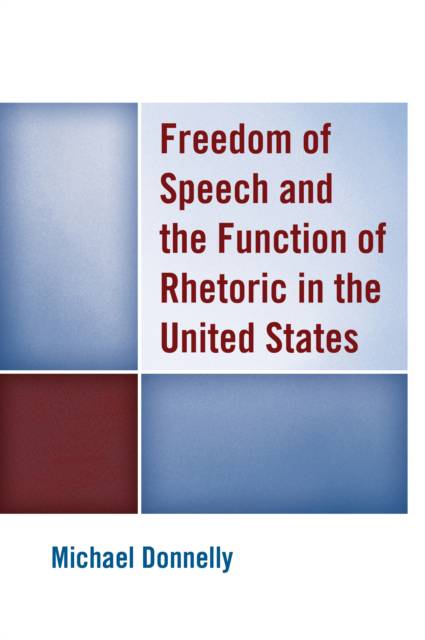
- Retrait gratuit dans votre magasin Club
- 7.000.000 titres dans notre catalogue
- Payer en toute sécurité
- Toujours un magasin près de chez vous
- Retrait gratuit dans votre magasin Club
- 7.000.0000 titres dans notre catalogue
- Payer en toute sécurité
- Toujours un magasin près de chez vous
Freedom of Speech and the Function of Rhetoric in the United States
Michael Donnelly
Livre broché | Anglais
77,95 €
+ 155 points
Format
Description
This book takes a critical view of the relationship between public discourse and culturally specific definitions of free speech to illuminate the ways in which cultural framing diminishes the complexity of free speech and sublimates a range of value-choices.
Spécifications
Parties prenantes
- Auteur(s) :
- Editeur:
Contenu
- Nombre de pages :
- 120
- Langue:
- Anglais
Caractéristiques
- EAN:
- 9781498548922
- Date de parution :
- 10-05-18
- Format:
- Livre broché
- Format numérique:
- Trade paperback (VS)
- Dimensions :
- 150 mm x 226 mm
- Poids :
- 199 g

Les avis
Nous publions uniquement les avis qui respectent les conditions requises. Consultez nos conditions pour les avis.






